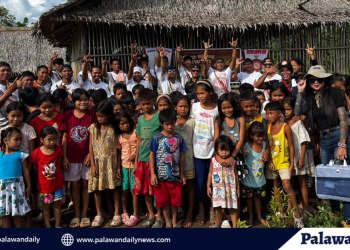I happened to watch an episode from an information channel whereby it highlighted how the People’s Republic of China is trying to address the challenges within their society through an “ambitious” social engineering project. They call it the “Social Credit System”. From the time it is being piloted, positive changes and affirmative perception can already be witnessed. However, like any other policy and plan of the government, there are criticisms about it, especially from the Western media. But the fact that it is actually working makes it worthy of consideration. If this approach will be studied by our government and will be modified to fit our local setting, I think it will also be effectual here.
For better understanding, let us have a glance at what the social credit system is all about.
The Social Credit System, which is first announced in 2014, and is due to be fully operational nationwide by 2020, is basically a social engineering project of the People’s Republic of China that provides a framework to monitor, rank and “manipulate” the conduct and demeanor of its citizens. It encompasses all aspects of life; judging citizen’s behavior and trustworthiness. It primarily aims to reinforce the idea that “keeping trust is glorious and breaking trust is disrespectful”, based on a Chinese government document. An article from The Conversation stated that a lot of Chinese people perceived the new social credit system as a national project to boost public morality through fighting fraud and crime and combatting what is currently seen as a nationwide crisis of trust. To put it in context, China has experienced a rising number of fraud cases and scams, as well as major scandals in the food safety and pharmaceutical industries. There is a widely held consensus that the punishment for these offences is not enough to deter re-offending, with people committing crimes in one province and setting up a business in another the next day with few consequences. Some believe the social credit system will remedy this through the blacklisting system.
The pilot system currently varies from one place to another, whereas it is envisioned as a unified system. One city, Rongcheng, gives all residents 1,000 points to start. Authorities make deductions for bad behavior like traffic violations and add points for good behavior such as donating to charity and obeying the rules.
The possible punishments for having low social credit scores are as follows: travel restrictions, throttling internet speeds, banning their kids from the best schools, stopping them from getting the best jobs, confiscating of their pets like dogs, being publicly named as a “bad” citizen, among others. On the other hand, those who have good scores can have advantages like discounts on energy bills, getting better interest rates at bank, to name a few.
The perpetual surveillance that comes with the new system is expected to draw on huge amounts of data from a variety of traditional and digital sources. Police officers have used AI-powered smart glasses and drones to effectively monitor citizens. Footage from these devices showing antisocial behavior can be broadcast to the public to shame the offenders and deter others from behaving similarly.
The social credit system, simply put, is derived from the reward-punishment principle. I think this is what we really need to become a more progressive nation. We have a lot of good laws that only need strong enforcement. But to me, it is not the main cause. Our greatest setback is our attitude and lack of discipline. We have been spoiled with too much democracy. Senator Manny Pacquiao, in an interview with Rappler, even said, “Alam mo nandyan pa rin yung democracy, under 1987 Constitution pa rin tayo. And naniniwala ako because of too much democracy kaya nagkaganito ganito. Lalong dumami yung corruption, tumigas yung mga tao, walang disiplina (Democracy is still there. We are still under the 1987 Constitution. I believe there is rampant corruption and lack of discipline because of too much democracy)”.
China, being fundamentally an authoritarian country, always tends to encroach upon human rights. However, a democratic country like ours may still adapt this system and make it less stringent as compared to China’s and of course more respectful of our human rights.
This kind of reward-punishment system can be applied, for example, to the management of solid wastes. It is a never-ending problem in the Philippines. I think the best way to compel the citizens to carry out segregation-at-source is to formulate our own “ranking or scoring system” as a basis for exemption, or for additional punishments like depriving the violators of some privileges, aside from the imposition of higher penalties. The rationale is that if the person did not follow the law, he then adds a burden as to the cost of waste management. Hence, he should pay more penalty or, in the same effect, be deprived of some privileges. I think it is not considered abusive, because waste segregation is such an easy task. We have only become complacent when it comes to this obligation. “Scoring” or “ranking” may also be used to discipline the drivers and pedestrians, and even the neighborhood. The same thing with RA 10931 or the Universal Access to Quality Tertiary Education Act, which is already in place. Those students who fail to comply with what is being required by the said law will lose their privilege.
What motivated China is the issue of trust; for us, it must be discipline. There is even a saying: Discipline makes a nation great.
References:
[1] The Business Insider Website: https://www.businessinsider.com/china-social-credit-system-punishments-and-rewards-explained-2018-4
[2] The Conversation Website: http://theconversation.com/hundreds-of-chinese-citizens-told-me-what-they-thought-about-the-controversial-social-credit-system-127467
[3] The Visual Capitalist Website: https://www.visualcapitalist.com/the-game-of-life-visualizing-chinas-social-credit-system/
[4] WIRED Website: https://www.wired.co.uk/article/china-social-credit-system-explained
[5] Rappler Philippines: https://www.rappler.com/nation/224754-manny-pacquiao-too-much-democracy-is-bad-for-the-philippines


















Discussion about this post